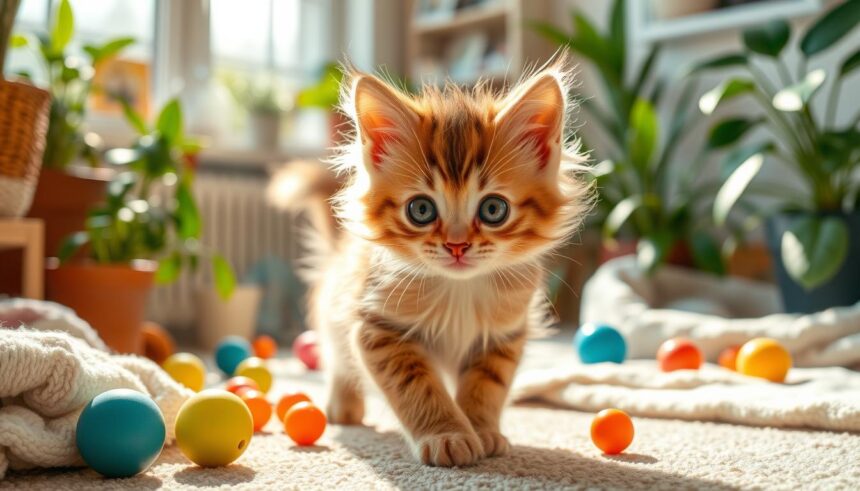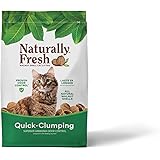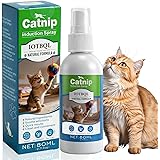What are the key kitten care tips for a 14 week old kitten to grow into a healthy adult cat? Experts say kittens need a balanced diet and regular vet visits at this age. As a pet owner, knowing your kitten’s needs is crucial.
Kittens are ready for their forever homes between 13 to 16 weeks. At 14 weeks, they need care and attention to do well. A warm, safe place, a balanced diet, and vet visits are essential for their health.
Key Takeaways
- Provide a balanced diet for your 14 week old kitten
- Ensure regular veterinary check-ups for health protection
- Create a warm and safe environment for your kitten
- Understand the importance of socialization and playtime
- Be aware of potential health risks and take preventive measures
- Consider kitten-proofing your home to ensure safety
- Stay informed about kitten care tips and best practices
Understanding Your 14 Week Old Kitten’s Development
At 14 weeks, your kitten is going through big changes. They are growing and learning new things. It’s important to know these changes to take good care of them.
Kittens that play a lot with their family tend to have bigger brains. They also like to explore and play more. This is because they get to interact with their family and learn from them.
Amazon Echo Show 5 (newest model), Smart display, Designed for Alexa+, 2x the bass and clearer sound, Charcoal
$89.99 (as of February 18, 2026 01:11 GMT +00:00 – More infoProduct prices and availability are accurate as of the date/time indicated and are subject to change. Any price and availability information displayed on [relevant Amazon Site(s), as applicable] at the time of purchase will apply to the purchase of this product.)FDW | 54″ Cat Tree Tower | Dark Gray | Multi-Level Indoor Activity Center with Sisal Scratching Posts, Condos, Plush Perches, Hanging Cat Toys | Sturdy, Easy to Assemble | for Kittens & Adult Cats
$38.99 (as of February 17, 2026 07:33 GMT +00:00 – More infoProduct prices and availability are accurate as of the date/time indicated and are subject to change. Any price and availability information displayed on [relevant Amazon Site(s), as applicable] at the time of purchase will apply to the purchase of this product.)Tactical Cat Harness and Leash for Walking Escape Proof, Adjustable Cat Walking Jackets, Padded Stylish Cat Vest, Khaki, Large
$17.99 (as of February 17, 2026 07:52 GMT +00:00 – More infoProduct prices and availability are accurate as of the date/time indicated and are subject to change. Any price and availability information displayed on [relevant Amazon Site(s), as applicable] at the time of purchase will apply to the purchase of this product.)Dr. Elsey’s Ultra UnScented Clumping Clay Cat Litter 40 lb. Bag
$22.99 (as of February 18, 2026 01:11 GMT +00:00 – More infoProduct prices and availability are accurate as of the date/time indicated and are subject to change. Any price and availability information displayed on [relevant Amazon Site(s), as applicable] at the time of purchase will apply to the purchase of this product.)Temptations Cat Treats Classic Crunchy and Soft Cat Treats, Tasty Chicken Flavor, 30 oz. Tub
$14.99 (as of February 17, 2026 07:33 GMT +00:00 – More infoProduct prices and availability are accurate as of the date/time indicated and are subject to change. Any price and availability information displayed on [relevant Amazon Site(s), as applicable] at the time of purchase will apply to the purchase of this product.)Yaheetech 54in Cat Tree, Multi-Level Cat Tower with Spacious Kitten-ear Perch, 2 Cozy Caves, Scratching Posts, Climbing Ladder, 2 Plush Balls, Durable Pet House Furniture for Indoor Kittens, Dark Gray
$38.23 (as of February 17, 2026 07:33 GMT +00:00 – More infoProduct prices and availability are accurate as of the date/time indicated and are subject to change. Any price and availability information displayed on [relevant Amazon Site(s), as applicable] at the time of purchase will apply to the purchase of this product.)ChomChom Roller Pet Hair Remover – Original Size Reusable Lint Roller for Cat & Dog Hair on Furniture, Couch, Carpet, Car, Rugs & Bedding – Portable, Eco-Friendly (White)
$24.99 (as of February 18, 2026 01:11 GMT +00:00 – More infoProduct prices and availability are accurate as of the date/time indicated and are subject to change. Any price and availability information displayed on [relevant Amazon Site(s), as applicable] at the time of purchase will apply to the purchase of this product.)Vital Essentials Freeze Dried Minnows Cat Treats | Single Ingredient | Premium Quality | Grain Free, Healthy Treats for Cats, 1 oz Bag
$11.59 (as of February 17, 2026 07:33 GMT +00:00 – More infoProduct prices and availability are accurate as of the date/time indicated and are subject to change. Any price and availability information displayed on [relevant Amazon Site(s), as applicable] at the time of purchase will apply to the purchase of this product.)Purina Friskies Pate Wet Cat Food Variety Pack Seafood and Chicken Pate Favorites 40ct VP – (Pack of 40) 5.5 oz. Cans
$32.76 (as of February 17, 2026 07:33 GMT +00:00 – More infoProduct prices and availability are accurate as of the date/time indicated and are subject to change. Any price and availability information displayed on [relevant Amazon Site(s), as applicable] at the time of purchase will apply to the purchase of this product.)Purina Friskies Wet Cat Food Variety Pack, Shreds With Beef, Turkey and Cheese Dinner, Chicken and Salmon Dinner, and With Ocean Whitefish and Tuna – (Pack of 40) 5.5 oz. Cans
$32.76 (as of February 17, 2026 07:33 GMT +00:00 – More infoProduct prices and availability are accurate as of the date/time indicated and are subject to change. Any price and availability information displayed on [relevant Amazon Site(s), as applicable] at the time of purchase will apply to the purchase of this product.)Kittens learn not to bite by playing with their siblings and mom. If they don’t play enough, they might play too rough later. Playing with them three to four times a day helps them learn when it’s time to play.
At 14 weeks, kittens get better at moving and making friends. Here are some important things to know about their growth:
- 0 – 2 weeks (Neonatal): Learning to orient toward sound; separation can lead to aggressive behaviors.
- 2 – 7 weeks (Socialization): By the sixth week, they begin to establish adult sleeping patterns and social interactions.
- 7 – 14 weeks: Most learning in kittens occurs during this period, often referred to as the most active play period, where social and object play increases.
Knowing about these stages and potential problems helps you care for your kitten. It sets them up for a happy and healthy life.
| Age | Weight | Developmental Milestones |
|---|---|---|
| 0 weeks | 3-5 ounces | Learning to orient toward sound |
| 4 weeks | 15 ounces | Crawling, playing, and socializing with littermates and caregivers |
| 7 weeks | 1.7-1.9 pounds | Fully weaned and eating wet food |
| 14 weeks | 2.5-3.5 pounds | Improved coordination and socialization skills |
Nutritional Needs for a Growing Kitten
Choosing the right food is key for a growing kitten. A kitten feeding schedule helps prevent overeating and supports growth. Kittens need 3 to 6 small meals a day, while adult cats need at least 2.
It’s important to watch a kitten’s food and water intake to avoid dehydration. Kittens should get about 30% of their energy from protein. Their diet should be full of nutrients. Feed kittens 3 to 4 meals a day, increasing food as they grow.
Tifanso 6PCS Stainless Steel Cat Bowls Dishes, 5.6” Metal Shallow Wide Whisker Friendly Cat Food Water Feeding Bowl, Kitten Plates, Basic Indoor Pet Food Tray, Dishwasher Safe
$8.99 (as of February 18, 2026 01:11 GMT +00:00 – More infoProduct prices and availability are accurate as of the date/time indicated and are subject to change. Any price and availability information displayed on [relevant Amazon Site(s), as applicable] at the time of purchase will apply to the purchase of this product.)Purina Fancy Feast Gravy Lovers Poultry and Beef Grilled Gourmet Wet Cat Food Variety Pack – (Pack of 24) 3 oz. Cans
$22.86 (as of February 18, 2026 00:20 GMT +00:00 – More infoProduct prices and availability are accurate as of the date/time indicated and are subject to change. Any price and availability information displayed on [relevant Amazon Site(s), as applicable] at the time of purchase will apply to the purchase of this product.)Naturally Fresh Cat Litter Made from Walnut Shells, Quick-Clumping, Unscented, Upcycled, Easy Scooping, Sustainable, 30 Lbs
$35.76 (as of February 17, 2026 07:33 GMT +00:00 – More infoProduct prices and availability are accurate as of the date/time indicated and are subject to change. Any price and availability information displayed on [relevant Amazon Site(s), as applicable] at the time of purchase will apply to the purchase of this product.)Temptations Cat Treats Classic Crunchy and Soft Cat Treats, Tasty Chicken Flavor, 30 oz. Tub
$14.99 (as of February 17, 2026 07:33 GMT +00:00 – More infoProduct prices and availability are accurate as of the date/time indicated and are subject to change. Any price and availability information displayed on [relevant Amazon Site(s), as applicable] at the time of purchase will apply to the purchase of this product.)PetSafe ScoopFree Disposable Crystal Cat Litter Tray – Easy Cleaning Box – Refill Tray for Electric Litter Box – Fresh Scent – 4.3 lb Bags – 3 Pack
$73.49 (as of February 17, 2026 07:33 GMT +00:00 – More infoProduct prices and availability are accurate as of the date/time indicated and are subject to change. Any price and availability information displayed on [relevant Amazon Site(s), as applicable] at the time of purchase will apply to the purchase of this product.)Bonkers PURRPOPS Freeze Dried CAT Treats – Chicken Licks 3 Pack
$27.99 (as of February 17, 2026 07:52 GMT +00:00 – More infoProduct prices and availability are accurate as of the date/time indicated and are subject to change. Any price and availability information displayed on [relevant Amazon Site(s), as applicable] at the time of purchase will apply to the purchase of this product.)Sheba Perfect Portions Wet Cat Food Cuts in Gravy, Cat Food Wet Recipe, Roasted Chicken Entree, with Sustainable Salmon, Tender Turkey Entree, 2.6 oz. Twin-Pack Trays (24 Count, 48 Servings)
$23.38 (as of February 18, 2026 01:11 GMT +00:00 – More infoProduct prices and availability are accurate as of the date/time indicated and are subject to change. Any price and availability information displayed on [relevant Amazon Site(s), as applicable] at the time of purchase will apply to the purchase of this product.)Modign Stainless Steel Litter Box with Lid,Side Entry Large Litter Box,Enclosed High Sided Litter Boxes with High Sided Enclosure&Scoop,Anti-Urine Leakage Non-Sticky for Kitty&Medium Cats(Grey)
$33.99 (as of February 17, 2026 07:52 GMT +00:00 – More infoProduct prices and availability are accurate as of the date/time indicated and are subject to change. Any price and availability information displayed on [relevant Amazon Site(s), as applicable] at the time of purchase will apply to the purchase of this product.)Temptations Cat Treats, Classic Crunchy and Soft Cat Treats, Catnip Fever Flavor, Catnip Treats, 30 oz. Tub
$12.18 (as of February 18, 2026 01:11 GMT +00:00 – More infoProduct prices and availability are accurate as of the date/time indicated and are subject to change. Any price and availability information displayed on [relevant Amazon Site(s), as applicable] at the time of purchase will apply to the purchase of this product.)TPBEHMZ Cat Deterrent Spray, Citrus Spray for Cats, Anti-Scratch & Anti-Marking for Furniture, Sofas & Carpet, Indoor & Outdoor Furniture Protection 7.0 OZ
$18.99 (as of February 17, 2026 07:33 GMT +00:00 – More infoProduct prices and availability are accurate as of the date/time indicated and are subject to change. Any price and availability information displayed on [relevant Amazon Site(s), as applicable] at the time of purchase will apply to the purchase of this product.)Here are some key points for a kitten feeding schedule:
* Kittens under six weeks should drink 2-22 ml of formula or cat milk daily.
* Kittens over six weeks should eat ¼ to 1 and ¾ cups of dry food daily.
* Newborn kittens need feeding every 2 hours in their first week. By week six, they eat solid foods every 6 hours.
By following a good kitten feeding schedule and watching their health, you can prevent kitten health concerns. This ensures your kitten grows into a healthy, happy adult cat.
Creating a Safe and Stimulating Home Environment
Bringing a new kitten home means setting up a safe and fun space. You’ll need things like food and water bowls, litter boxes, and scratching posts. These items help your kitten feel comfortable and happy. By using kitten care tips, you can make their transition smoother and less stressful.
It’s also important to socialize your kitten. Short play sessions of about 10 minutes each day can strengthen your bond. Plus, toys and scratching posts keep them engaged and prevent boredom.
Here are some must-haves for your kitten’s area:
- Resting area, such as a cozy bed or blanket
- Water and food bowls
- Toys, such as feather wands or catnip mice
- At least one or two litter boxes
By following these tips and creating a welcoming home, your kitten will grow into a happy and healthy cat.
| Essential Supplies | Description |
|---|---|
| Food and water bowls | Stainless steel or ceramic bowls that are easy to clean |
| Litter boxes | At least one or two litter boxes per kitten, depending on size and number of kittens |
| Scratching posts | Tall, sturdy posts made of sisal rope or carpet |
Socialization and Training Techniques
Kitten socialization is key for a well-adjusted cat. It’s vital in multi-pet homes to avoid fights. Introducing kittens to people, especially kids, under watchful eyes is safe and builds good relationships.
Regular socialization builds a strong bond with your cat. Cats need mental and physical stimulation to avoid bad behavior. Toys and activities can keep them happy and prevent boredom.
Introducing Your Kitten to Family and Pets
Introduce your kitten to family and pets carefully. Start with visual introductions, then supervised meetings. Kittens are most social from two to eight weeks, so invest time in this period.

- 🐱 【Multifunctional Activity Center】The cat Tree provides 3 top perches platforms and two cozy condo. Whether your kitten wants to stretch out on a spacious perch, curl up in a plush hole room, or release the urge to scratch on a sisal pole, this multifunctional cat tree tower works perfectly as a recreation paradise,which can make your fur baby's day full of fun and excitement!two toys gives them a unique way and Fun to play!
- 🐱【 Large Space Vertical】Because of its compact footprint and ability to conserve floor space, the cat tree design offers a large amount of vertical space. Every cat can have their own zone thanks to the cat jumping platform, which is another way that modern cat trees promote indoor cat peace. Maximum Load Capacity: 44 lbs. If your cat is too big for this cat tree, please buy one for tiny and medium-sized cats!
- 🐱 【Stable Construction】Our Cat Tower is made of high-quality particle board with skin friendly plushy faux-fur cover to keep your cat warm and comfortable. The cat activity tree has a wall anchor strap which provides a good double security protection. You don't have to worry that the cat tree will overturn or shake accidentally.Give your cat the best protection!ideal for average kittens and cats.
- 🐱 【Posts for Scratching Covered in Sisal 】These are scratching surfaces that are integrated into the framework. Cats love to bury their claws in sisal because it's a sturdy substance with a coarse texture. Our cat tree promotes healthy scratching habits and helps discourage cats from damaging furniture by offering dedicated spaces for them to scratch.
- 🐱 【Simple assembly】We understand that convenience is important to pet owners, which is why we made our cat tree simple to assemble in a matter of minutes. You can quickly provide your kitties a stimulating environment by following the simple setup instructions and using the available tools. Please feel free to contact us with any questions you may have about our cat tree, and we will respond to you within a day!

- Teething Fun: Ideal for kittens and cats alike, these chew toys are an essential addition to your kitty’s dental care. With natural gall fruit and rope design, the toys are perfect for teething and teeth cleaning, they combat tartar and freshen breath, making dental hygiene a fun activity for your little one!
- Infused with Catnip Aroma: The included catnip bag emits a soothing aroma that's irresistible to felines, ensuring these toys are a calming and engaging presence for indoor play. Our cat toys provide the calming, meow-inducing fun every kitten craves, along with a funny and interactive experience.
- Energetic Exercise: Promote healthy exercise and self-play with our toys' appealing textures and tassels. They’re designed to entice your kitty to bite and play aggressively without harm, offering hours of exercise and self-amusement, keeping your cat active and happy.
- Quiet Play: These soft colorful ropes provide enriching quiet playtime without bothering cat owner's sleep or life. Your kitty will love the funny snake-like shapes, enhancing their playtime with every pounce and bite.
- Safe and Organic: These chew toys, handcrafted without any metal wire and using organic cotton rope, are safe for all cats. Paired with a reusable catnip bag, they’re an essential, eco-friendly addition to your cat’s enrichment collection.

- MADE WITH WHOLESOME INGREDIENTS YOU CAN TRUST: Every Inaba product is made with yummy ingredients including farm-raised chicken and/or wild-caught tuna
- KEEP OUR FELINE HYDRATED WITHOUT ADDING CALORIES: Each delicious, creamy Churu tube contains 91% moisture and only 6 calories (a tenth of the calories of traditional dry cat treats), which makes it a healthy snack you can feel good about feeding
- FREE OF THE BAD STUFF: Your feline friend is important to us, which is why we've kept things like grains, preservatives, artificial colors and carrageenan out of our cat treats, but we added things like Vitamin E for immunity
- HAVE THEM EATING OUT OF YOUR HAND: These lickable purée meat tubes for cats were designed to be fed by hand, as an interactive way to spend time with your feline, but you can use as a wet/dry cat food topper or as a way to disguise medication
- ADD SOME VARIETY TO YOUR CAT'S LIFE: Available in eleven savory flavors, cats of all stages (kitten to senior) will be able to find a flavor they love

- FREEZE-DRIED RAW MINNOWS CAT TREAT: Vital Essentials Freeze Dried Cat Treats pack more protein than industry standard into every bite to deliver the peak vitality your dog deserves. Our natural freeze-dried raw cat treats are made from responsibly sourced premium minnows.
- BETTER PROTEIN = BETTER BENEFITS: The best freeze dried cat treats on the market use premium butcher cut raw protein to unlock the benefits of naturally occurring vitamins and minerals in raw muscle and organs, because pets deserve the energetic playtimes, healthy skin, shiny coats, strong teeth, and essential gut health that a high-protein diet delivers.
- PROUDLY AMERICAN CRAFTED: All our cat treats and food are responsibly sourced and humanely harvested to ensure the quality of our proteins. We go above industry standards to preserve flavor and ensure the highest quality of protein and nutrients in every Vital Essentials product.
- MADE WITHOUT: Cat treat additives, fillers, dyes, flavorings, artificial preservatives, grains, or rendered by-products. Vital Essentials also offers the widest variety of single-protein raw cat food and treats on the market—great for picky eaters and cats with allergies!
- RAW CAT TREATS FREEZE DRIED FOR PEAK FRESHNESS: Our protein is frozen within 45-minutes of harvesting to lock in peak nutrients, flavor, and freshness. A slow-freeze-dry ensures minimal processing, while preserving the vital nutrients that our pets deserve, the way nature intended.

- Cats Lose Their Cool: Just shake the pack, and your favorite feline will come running for their favorite cat treats
- Purr-fect Texture: Cat treats are crunchy on the outside and soft on the inside, making it the cat snack that keeps them coming back
- Under 2 Calories Per Treat: Each cat treat is under 2 calories, so these little crunchy goodies make the perfect snack or reward that can be given daily
- Trifecta of Tempting Cat Treats: Catnip Fever is a delicious cat snack with a mix of chicken, catnip, and cheese flavors your cat will love
- Value-Sized, Resealable Tub: Treat ’em again and again using the resealable tub that is perfect for keeping cat paws off when you’re not watching

- Award-Winning Product. Veken is proud to be a 2024 Category Winner of the Pet Innovation Awards, an honor given to only the most forward-thinking products within the rapidly expanding Pet industry.
- Upgraded Stainless Steel. Opt for a stronger, more hygienic version of our best selling pet fountain. Easy to clean and BPA-free, our stainless steel design offers the elevated and modern look you want with additional benefits.
- Large Capacity Water Tank. Worry less about your furry friend running out of water. Our pet fountain features a generously sized water reserve tank to help you avoid frequent refilling, ensuring your pets are healthy, hydrated, and happy.
- Advanced 5-Stage Filtration. Our upgraded system with silver, scale inhibitors, and activated carbon delivers fresh, clean water for up to 3 weeks. For optimal performance and your pet’s health, we recommend using softened or filtered water.
- LED Light Feature. Illuminate your pet’s favorite drinking spot with our optional on/off light feature. Designed for assisted visibility of water level and fountain location, our gentle light is perfect for avoiding spills and easy refilling.

- 4-in-1 Monitoring Tools: Sealed, hygienic strips for comprehensive cat wellness indicator checks.
- Simple At-Home Use: User-friendly steps with clear guidance—no professional training needed.
- Quick Readings: Obtain consistent readings at home in 10-20 minutes to stay attentive to your cat’s needs.
- Gentle and Non-Intrusive: Designed for minimal stress, using easy sample collection (feces/swabs) suitable for cats.
- Hygienic Components: Individually sealed tools and pre-measured solution for clean, safe use at home.

- 【Interactive Cat Toys】High quality aluminum alloy shell which equipped with metal clip design and three adjustment modes, only need to slide adjustment, no need to long press,in addition,Interactive cat toys mini size and easy to carry, easily put this cat toys in your pocket or bag, use it anytime and anywhere for added.
- 【7 In 1 Modes】This cat toys has 5 patterns: red dot, mice, butterfly, smile face, star. Scoll the black gear on the head to change to 3 different modes: red, purple, white. You can use the purple to check couterfeit currency and check your pets. White mode can be used for emergency lighting. The red mode can be used to play with your cat or for PowerPoint presentation.
- 【Indoor Play】Excellent interactive cat toys can not only bring endless fun, but also exercise the pet's body and agility.Can provide exercise and endless fun,This exercise chaser toy can satisfy the curiosity and playfulness of your cat.
- 【USB Direct Charging】Unplug the back cover and connect the charging head to charge it. It does not need dry battery and is environmentally friendly.
- 【Gifts for Your Pets】With this cat toys, your pet will not feel lonely, but also can enhance the relationship between you and your pet, It's the best gift for pets.

- Unique and Funny Design: These cute plush cat toys are designed to look like knives, creating a hilarious contrast with your kitty's playful nature. Perfect for indoor play, they will bring endless amusement to both you and your cat.
- Multiple Attractions: Filled with organic catnip and silvervine, these toys make cats excited and playful. The crinkle paper inside adds an extra layer of fun, making engaging sounds that entice your kitty to play and exercise.
- High-Quality and Safe: Made from durable materials, these toys are designed to withstand biting and clawing. The high-quality catnip is sun-dried and packaged in a non-woven bag, ensuring a long-lasting, refreshing scent that keeps your cat coming back for more.
- Interactive and Engaging: These toys provide great enrichment for your cat's life, promoting exercise and interactive play. The crinkle sound and realistic design keep your kitty engaged and stimulated, preventing boredom and promoting healthy activity.
- Calming and Cuddly: Perfect for self-play and calming your cat, these plush toys are soft and safe for your kitty to cuddle and bite. The combination of catnip and silvervine provides a soothing effect, making them an essential addition to your cat's toy collection.

- Friskies Prime Filets wet cat food made with real meat, poultry or seafood. Savory sauce or gravy for cats adds flavor and moisture
- Shredded soft cat food chunks offer a tempting texture. Provides 100 percent complete and balanced nutrition for adult cats
- Multi-can Friskies canned cat food variety pack makes it easy to stock your pantry. Contains essential vitamins and minerals in every serving
- Enticing, moist cat food aroma tempts her to her dish. Checked for quality and safety to provide added peace of mind
- Canned cat food variety pack formulated to meet or exceed industry standards for cat food
Basic Commands and Litter Box Training
Teach basic commands and litter box use to prevent accidents. Handling kittens for just five minutes a day can greatly benefit them. Spend at least two hours a day with kittens at five weeks to ensure positive socialization.
| Age | Socialization Period | Recommended Interaction Time |
|---|---|---|
| 2-8 weeks | Sensitive period for socialization | Handling for 40 minutes to two hours a day |
| 5 weeks | Crucial for socialization | At least two hours each day interacting with kittens |
| 8-14 weeks | Continued socialization in new environments | Regular socialization sessions |
By using these socialization techniques and addressing behavior issues, your kitten will grow into a well-adjusted adult cat.
Health Care Essentials for Kittens
As a responsible kitten owner, it’s crucial to prioritize your kitten’s health and well-being. Regular veterinary check-ups and vaccinations are vital to prevent kitten health concerns. A typical vaccination schedule includes a series of three vaccinations: the first at 8 weeks, the second at 12 weeks, and potentially a third at 16 weeks.
Considering spay/neuter options is also essential. It helps prevent unwanted breeding and reduces health risks. By following these kitten care tips, you can help ensure your kitten stays healthy and thrives. Regular feeding with small meals throughout the day, typically 3-4 times a day for kittens up to 6 months old, is also recommended.
It’s also important to be aware of potential kitten health concerns, such as Feline Enteritis and Feline Respiratory Disease. By staying informed and working closely with your veterinarian, you can help prevent these issues and provide the best possible care for your kitten.
Some key kitten care tips include:
- Regular veterinary check-ups
- Vaccinations according to the recommended schedule
- Considering spay/neuter options
- Providing a nutritious diet and plenty of fresh water
By following these tips and staying informed about potential kitten health concerns, you can help your kitten grow into a happy and healthy adult cat.
Understanding Kitten Behavior
Kittens grow and show unique behaviors as they develop. These traits are key for effective kitten care tips. Knowing these behaviors helps solve kitten behavior problems and creates a caring space for your kitten.
Kittens love to play socially, like belly-ups and hugging, a lot during 7 to 14 weeks. They also start playing with objects, like toys, to improve their skills. It’s important to understand these behaviors to give the right kitten care tips and fix any kitten behavior problems.
Some common kitten behaviors include:
- Social play: Kittens learn social skills by interacting with their littermates and human caregivers.
- Object play: Kittens develop their coordination and skills by playing with objects, such as toys.
- Scratching and biting: Kittens exhibit these behaviors as a natural part of their development, but they can be addressed with proper kitten care tips and training.
By understanding and addressing these behaviors, you can make your kitten’s life happy and healthy. Always focus on kitten care tips and get professional help if you face any ongoing kitten behavior problems.
| Age | Behavioral Traits |
|---|---|
| 7-14 weeks | Social play, object play, scratching, and biting |
| 14 weeks and older | Refined social skills, developed object play, and potential emergence of adult behaviors |
Playtime: Activities for Your Kitten
Playtime is key for a kitten’s growth. It’s important to pick safe toys and play together to help them socialize and stay active. Since kittens under three months don’t react much to catnip, try other toys and games. Playing with wands helps keep a safe distance, which is good for both kittens and owners.
Some safe toys for kittens include:
- Feather toys
- Laser pointers
- Wand toys with strings or ribbons
- Puzzle toys
Choosing Safe Toys
When picking toys for your kitten, think about their safety and how long they last. Stay away from toys with small parts or strings that can be swallowed. Choose toys that are safe and won’t harm your kitten.
Interactive Play Ideas
Play ideas like chasing a laser pointer or playing with a feather toy are fun and good exercise. Always watch your kitten during play to keep them safe from harmful things.
By following these tips, you can make playtime fun and engaging for your kitten. This helps them socialize and stay active.
| Age | Playtime Duration | Play Ideas |
|---|---|---|
| 0-3 months | 5-10 minutes | Interactive play with wands, feather toys |
| 3-6 months | 10-20 minutes | Laser pointers, puzzle toys |
| 6 months and older | 20-30 minutes | Interactive play with wands, feather toys, puzzle toys |
Grooming Your 14 Week Old Kitten
Grooming is key in kitten care tips. It helps keep your kitten healthy and clean. At 14 weeks, they’re still learning about their world. Grooming makes them feel safe and comfortable.
Bathing your kitten needs special care. About 30% of cats don’t like baths. Start by letting them play with water. Then, slowly add more water over time.
Here are some kitten health concerns to watch for during grooming:
- Trimming your kitten’s nails before grooming can lower scratch risk by 40%.
- Use only a dime-sized amount of shampoo to avoid overwhelming them.
- Keep the water level low to make bathing less scary.
By following these kitten care tips and being aware of kitten health concerns, your kitten will feel at ease. Always put your kitten’s safety first. If you’re unsure, talk to your vet.
| Grooming Activity | Frequency |
|---|---|
| Bathing | No more than once every 3 to 6 months |
| Nail Trimming | Every 4 to 6 weeks |
| Brushing | Daily |
Identifying and Addressing Health Issues
As a kitten owner, knowing about health concerns is key. It’s important to take steps to prevent or fix these issues. Look out for signs like vomiting, diarrhea, and being very tired. These are reasons to see a vet right away.
A healthy kitten should have open eyes and pink gums. They should breathe about 24-42 times a minute. If they sneeze, have clear or colored nasal discharge, it might mean they’re sick. Regular vet visits can catch these problems early.
- Severe lethargy or inability to lift the head
- Wobbling or unsteady movements after 4 weeks of age
- Changes in appetite or water intake
- Abnormal stool or urine output
Working with your vet is crucial to tackle health issues. This ensures your kitten gets the best care.
By focusing on your kitten’s health, you can avoid big problems. This way, your kitten will grow up happy and healthy.
Importance of Enrichment and Stimulation
Teaching your kitten important skills is key for their growth. Kittens need both mental and physical challenges to avoid bad habits. Experts say kittens should play at least 2 to 3 times a day, in short sessions.
Here are some ways to keep your kitten engaged:
- Puzzle toys and interactive games
- Outdoor exploration, with proper safety precautions
- Scratching posts and cat towers
For more tips on raising your kitten, check out kitten care resources. By using these kitten care tips and kitten socialization techniques, your kitten will grow into a happy adult cat.
Every kitten is unique, so it’s important to adjust your care to fit their needs. With patience, love, and the right care, your kitten will thrive and become a cherished family member.
Building a Strong Bond with Your Kitten
As your kitten grows, it’s key to build a strong bond. Use positive reinforcement and gentle interaction to do this. Following kitten care tips helps your kitten become confident and loving.
Understanding kitten body language is vital. Knowing signs of fear, anxiety, and aggression helps you respond right. Positive reinforcement techniques, like treats and praise, encourage good behavior and strengthen your bond.
Here are some ways to build a strong bond with your kitten:
- Spending quality time with your kitten, engaging in play and gentle interaction
- Providing a comfortable and safe environment, free from stress and anxiety
- Using positive reinforcement techniques to encourage good behavior
By following these tips and prioritizing socialization, your kitten will be happy and well-adjusted. Always put your kitten’s needs first and create a safe, nurturing space for them to grow.
| Kitten Age | Socialization Window |
|---|---|
| 3-7 weeks | Critical socialization window |
| 7-12 weeks | Secondary socialization period |
| 12-14 weeks | Tertiary socialization period |
Preparing for Changes as Your Kitten Grows
As your kitten goes through the kitten development stages, you’ll notice changes. It’s important to adjust your kitten care tips to meet their growing needs. One key area is changing their diet to ensure they get the right nutrients for growth.
When it’s time to switch from kitten food to adult food is around 9 to 12 months. Always talk to your vet to find the right time and choose the best adult food for your kitten.
Expect behavioral shifts as your kitten grows up. They might become more independent and territorial. To keep a strong bond, give them more attention and interaction. Understanding these changes and adjusting your kitten care tips will help your kitten’s transition to adulthood be smooth and happy.
| Age | Feeding Schedule |
|---|---|
| 8-12 weeks | 4 meals a day |
| 3-6 months | 3 meals a day |
| over 6 months | 2 meals a day |
Traveling with Your Kitten
Traveling with your kitten can be tough, but with the right plan, it can be fun for both of you. When you’re kitten care tips include keeping your kitten safe and happy while traveling. It’s key to get your kitten used to their carrier. Start by placing the carrier in a room your kitten likes, add a favorite toy or blanket, and gently encourage them to go inside.
Another important thing is kitten socialization techniques. Socializing your kitten early is vital, and travel is a great chance to do so. Here are some tips to make traveling better for your kitten:
- Choose a carrier that’s well-ventilated and strong
- Get your kitten used to the carrier before you go
- Bring your kitten’s favorite toys and blankets
- Make sure to give them breaks for play and exercise
By using these kitten care tips and kitten socialization techniques, you can make sure your kitten has a good time traveling. Always talk to your vet before you travel, especially if your kitten has health issues or needs medicine.
| Travel Tip | Description |
|---|---|
| Carrier Acclimation | Place the carrier in a room where your kitten spends most of their time, adding a familiar toy or blanket, and encouraging them to enter the carrier voluntarily |
| Socialization | Socialize your kitten to new environments, people, and experiences during travel |
| Regular Breaks | Provide regular breaks for exercise and playtime during travel |
Safety Tips for Your Home
As a responsible pet owner, keeping your kitten safe is key. You need to follow kitten care tips and watch out for kitten health concerns. Kittens love to explore, so keep cleaning products and medicines out of reach. Also, make sure to turn off electrical devices to avoid electric shock.
According to the Cats Protection organization, many household plants are toxic to cats. The lily is especially dangerous. Also, kittens can’t climb out of toilet bowls, which is a drowning risk. And, loose blind cords can strangle curious kittens, so keep them tied up.
- Secure toxic substances and electrical cords
- Store fragile items safely
- Install safety covers on electrical outlets
- Supervise your kitten at all times
By following thesekitten care tipsand being aware of potentialkitten health concerns, you can create a safe and happy environment for your kitten to thrive.
Understanding the Life Stages of Cats
As your kitten grows, it’s key to know about their life stages. The kitten phase is full of fast growth and discovery. But, their journey doesn’t stop after 14 weeks. Preparing for their changing needs and behaviors is important for their health and happiness.
What to Expect Beyond Kittenhood
When kittens reach 6 months, they may start new behaviors like marking territory. This is part of their growth into adulthood. They will keep growing and learning until they reach full size, usually between 12-18 months.
Preparing for Adult Cat Care
Caring for an adult cat is different from kitten care. You’ll need to create a routine, provide fun activities, and watch their health. Regular vet visits, a good diet, and a safe, interesting place to live are all important for their well-being.

















































































































































































